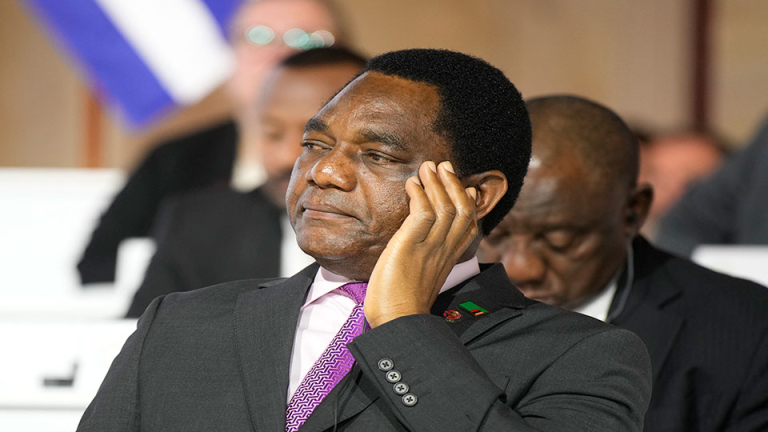
Zambia’s President Hakainde Hichilema pointed fingers at private creditors on Friday, citing their role in the prolonged delay of a much-awaited debt restructuring deal for the nation, marking Zambia as the first African country to default after the Covid pandemic.
With $18.6 billion in debt upon its default in 2020, Zambia reached a preliminary agreement in October with foreign lenders.
President Hichilema disclosed that approximately 98 percent of official creditors have signed a memorandum of understanding to restructure Zambia’s debt, which was estimated at $32.8 billion by the end of 2022. Addressing a press conference in Lusaka, he hailed this as a significant achievement.
However, negotiations with private creditors have hit a standstill, Hichilema noted, citing a dispute over the “comparability of treatment” rule within a G20-endorsed debt restructuring framework for the most impoverished countries, established in 2020. This rule necessitates uniform losses among all creditors in any debt restructuring deal.
The president highlighted that official creditors seek parity between their agreements and those negotiated with private creditors. Expressing the need for a resolution, he urged both official and private creditors to convene and find a common ground to resolve the deadlock.
In the wake of the October agreement, some official creditors, including China, initially rejected it due to perceived preferential terms offered to certain private lenders. The International Monetary Fund (IMF) emphasized the urgency of implementing the October deal and reaching an accord with private creditors to restore Zambia’s “debt sustainability.”
Revising Zambia’s 2023 economic growth forecast to 4.3 percent, the IMF sanctioned a second review of its loan agreement to release nearly $200 million for Zambia.
The protracted negotiations are viewed as a litmus test for the G20 common framework, particularly at a time when concerns regarding debt in low-income nations are on the rise. Criticisms have been leveled at the framework, especially as several African nations either grapple with or are on the brink of debt distress.
Following in Zambia’s footsteps, Ghana also faces default and is engaged in discussions with creditors and the IMF.
